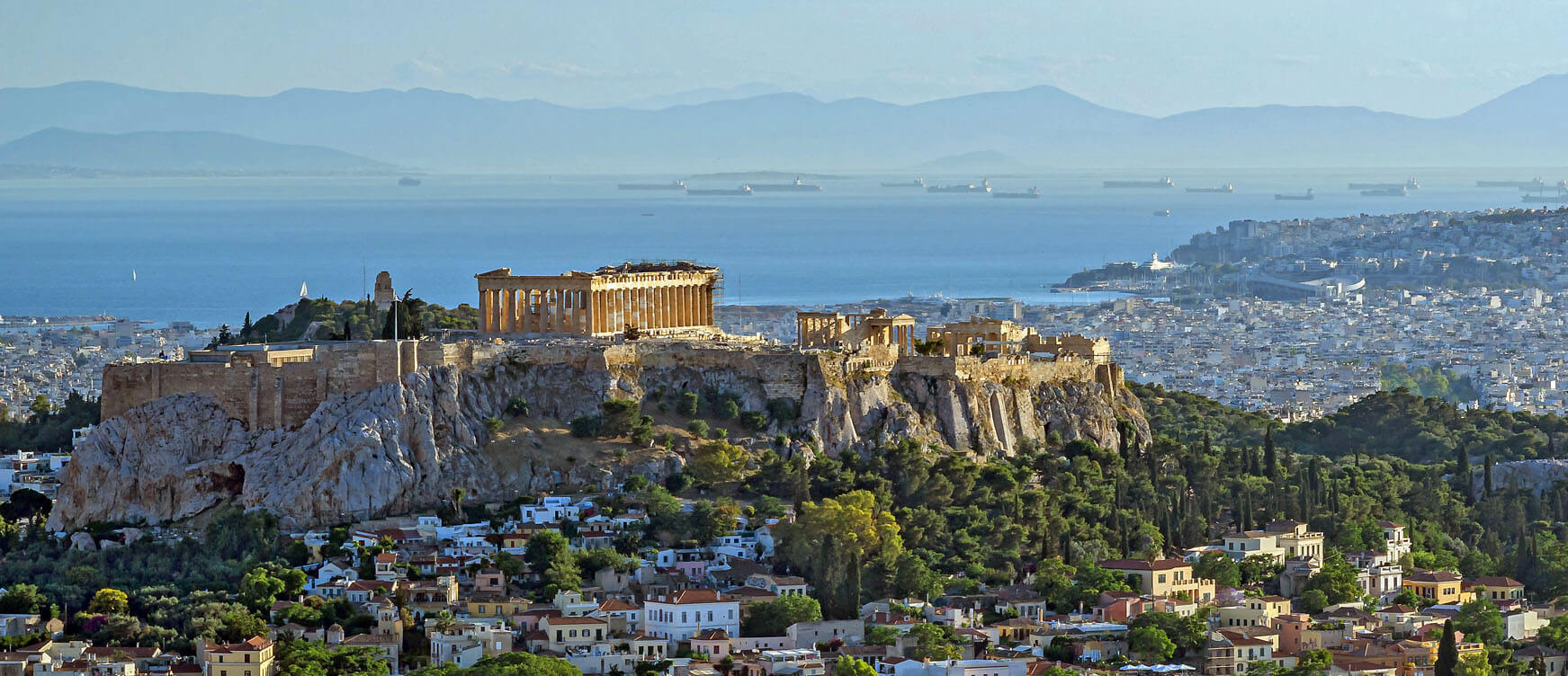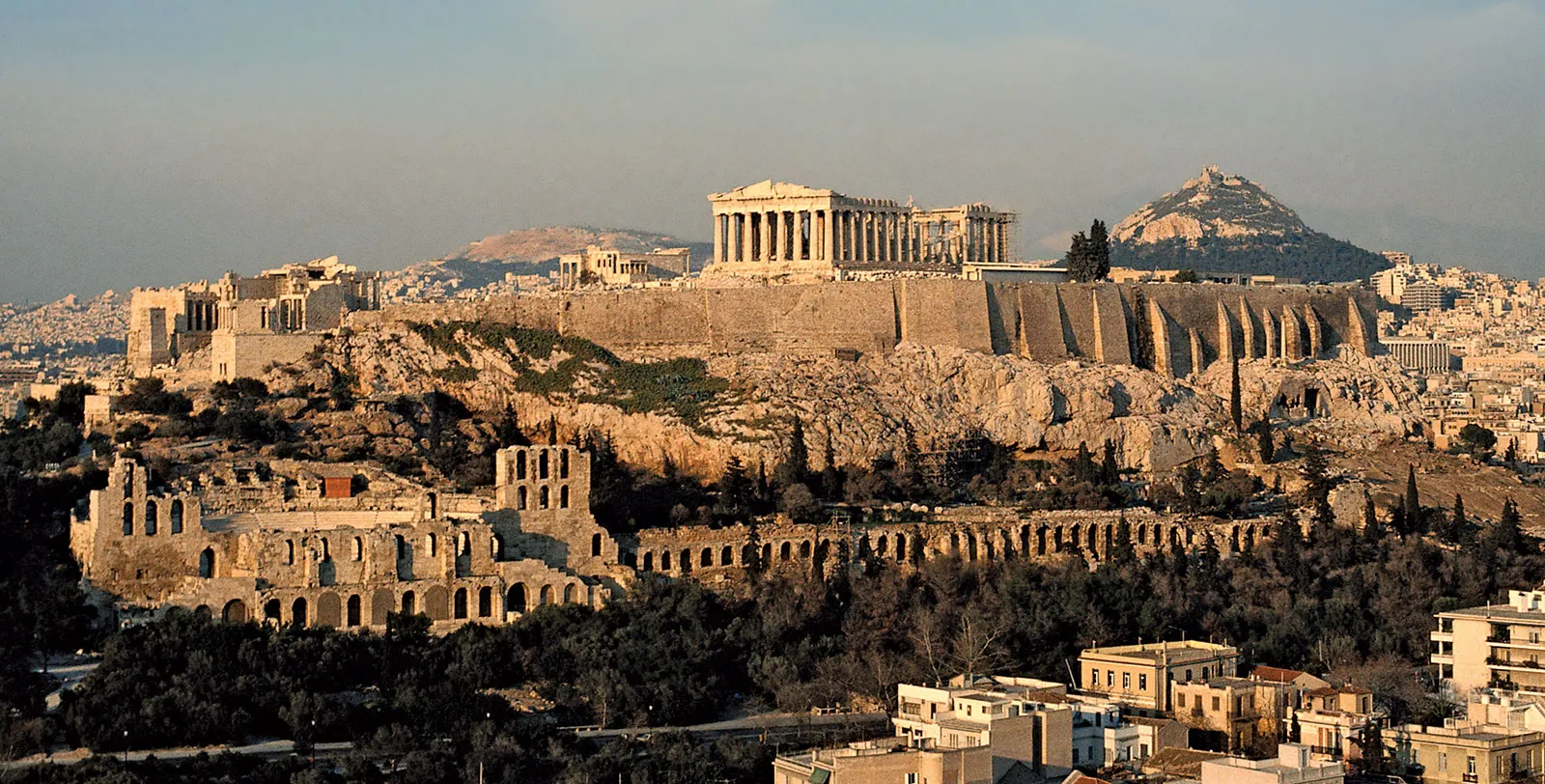Welcome to Athens, the birthplace of democracy and Western civilization. Steeped in myth, history, and culture, Athens is a city that exudes a timeless charm. As you walk through its ancient streets, you’ll find yourself immersed in a rich tapestry of the past, where philosophers like Socrates and Plato once pondered life’s greatest questions.
With its iconic landmarks, such as the Acropolis and the Parthenon, Athens stands as a testament to the ingenuity and creativity of its ancient inhabitants. The city’s architectural marvels and archaeological treasures serve as a reminder of the pivotal role Athens played in shaping the world as we know it today.
Home to some of the world’s finest museums and art collections, Athens offers a wealth of cultural experiences. From exploring the fascinating exhibits at the National Archaeological Museum to admiring the breathtaking art at the Benaki Museum, visitors can delve into the city’s rich artistic heritage.
Indulge in the vibrant Greek cuisine, characterized by its fresh ingredients and robust flavors. From delectable souvlaki to mouthwatering moussaka, Athens offers a gastronomic journey like no other.
Uncover the timeless charm of Athens, where history comes to life. Whether you’re a history buff, an art enthusiast, or simply seeking a captivating travel experience, this ancient city will captivate your heart and ignite your imagination.
The Historical Significance of Athens
Athens has long been recognized as one of the most important cities in Western history, serving as a beacon of innovation and cultural advancement. Its historical significance dates back thousands of years, with archaeological evidence indicating that human settlement in the region began as early as the Neolithic period. The city emerged as a powerful city-state during the 5th century BC, a time often referred to as the Golden Age of Athens, when it became the center of art, philosophy, and politics that would influence generations to come.
The location of Athens was strategically significant, as it was situated near the sea, providing access to trade routes and fostering economic growth. This geographical advantage allowed Athens to develop into a thriving hub where ideas and cultural exchanges flourished. The city’s development was not merely a product of its physical location but also the result of its vibrant citizenry who championed ideals of democracy, civic engagement, and intellectual exploration.
Moreover, the historical legacy of Athens is preserved through its landmarks and ruins, which continue to draw millions of visitors each year. The remnants of ancient structures remind us of the city’s extraordinary past and the influence it has had on modern governance, philosophy, and art. From the ruins of the Agora to the majestic Acropolis, every corner of Athens tells a story of resilience, creativity, and the relentless pursuit of knowledge.
The Birth of Democracy in Athens
The concept of democracy as we know it today has its roots in ancient Athens, where citizens were given the unique opportunity to participate in governmental decision-making. This revolutionary idea emerged in the 5th century BC, primarily under the leadership of Cleisthenes, who is often referred to as the “Father of Democracy.” Cleisthenes established a system in which free male citizens could vote, propose laws, and hold public office, laying the groundwork for future democratic systems around the world.
The Athenian democracy was characterized by its direct nature, where citizens gathered in assemblies to discuss and vote on various matters affecting the city-state. This participatory model was groundbreaking, as it allowed individuals to express their opinions and play an active role in governance, unlike the representative systems that dominate modern democracies. Although this democracy was limited to male citizens, excluding women, slaves, and foreigners, it nonetheless marked a significant advancement in political thought and practice.
The Athenian experiment in democracy inspired countless political thinkers and movements throughout history. The principles of civic responsibility, equality before the law, and the importance of individual voice in governance resonate to this day. The legacy of Athenian democracy can be seen in modern political systems, which strive to embody the values of participation, transparency, and accountability that were first articulated in this ancient city.
The Cultural Achievements of Ancient Athens
Ancient Athens was not only a political powerhouse but also a cultural epicenter that produced remarkable achievements in literature, theater, art, and architecture. The city was home to renowned playwrights like Sophocles, Euripides, and Aeschylus, whose works laid the foundation for Western drama. The theater of Dionysus, situated at the foot of the Acropolis, hosted performances that explored complex themes of morality, fate, and the human condition, captivating audiences and leaving a lasting impact on the art of storytelling.
In addition to theater, Athens was a flourishing center for visual arts. Artists such as Phidias and Praxiteles created stunning sculptures that celebrated the human form and the gods. The Parthenon, one of the most iconic structures in the world, is a testament to the architectural brilliance of ancient Athenians. It stands as a symbol of harmony, proportion, and beauty, reflecting the ideals of the classical style that would influence architecture for centuries.
Philosophy also thrived in Athens, with figures like Socrates, Plato, and Aristotle shaping the foundations of Western thought. Their inquiries into ethics, metaphysics, and politics stimulated profound debates that continue to resonate in contemporary discourse. The Academy founded by Plato and the Lyceum established by Aristotle became centers for intellectual pursuit, encouraging critical thinking and the pursuit of knowledge.

Athens as a Center of Philosophy and Education
The intellectual landscape of ancient Athens was vibrant and diverse, attracting scholars from various disciplines who sought to explore the fundamental questions of existence, ethics, and knowledge. Socrates, known for his Socratic method of questioning, challenged conventional wisdom and encouraged individuals to seek truth through dialogue. His teachings laid the groundwork for future philosophical inquiry and emphasized the importance of self-examination and critical thinking.
Plato, a student of Socrates, expanded upon his mentor’s ideas and founded the Academy, one of the earliest institutions of higher learning in the Western world. Here, he taught his philosophical ideas, including the theory of Forms and the concept of an ideal state. The Academy became a hub for intellectual discourse, attracting students and thinkers who would go on to influence various fields of study.
Aristotle, a student of Plato, furthered the pursuit of knowledge by establishing his own school, the Lyceum. His contributions spanned numerous disciplines, including biology, ethics, politics, and metaphysics. Aristotle’s empirical approach to studying the natural world laid the foundation for the scientific method and established a legacy that would endure for centuries. The intellectual achievements of these philosophers not only shaped the course of Western philosophy but also inspired countless generations to question, explore, and expand the boundaries of human understanding.
Famous Landmarks and Archaeological Sites in Athens
Athens is adorned with remarkable landmarks and archaeological sites that serve as a testament to its rich history. The Acropolis, a UNESCO World Heritage site, stands majestically above the city, dominating the skyline with its ancient structures. The Parthenon, dedicated to the goddess Athena, is the most iconic of these structures, renowned for its architectural perfection and historical significance. Visitors flock to the Acropolis to marvel at the intricate carvings and grand columns that tell the story of Athenian devotion and artistry.
Another notable site is the Ancient Agora, once the heart of Athenian public life. This sprawling complex was the center for political, social, and commercial activities, where citizens gathered to discuss civic matters and engage in trade. The Temple of Hephaestus, one of the best-preserved ancient temples, stands within the Agora, showcasing the architectural prowess of its builders and providing insight into the religious practices of the time.
The National Archaeological Museum of Athens houses an extensive collection of artifacts that trace the evolution of Greek civilization. From exquisite sculptures to intricate pottery, the museum offers visitors a glimpse into the lives of ancient Athenians. Exhibitions highlight the artistry and craftsmanship of the time, while the museum’s vast collections serve as a vital resource for historians and scholars seeking to understand the cultural heritage of Greece.
Modern-Day Athens: Preserving History While Embracing the Present
While Athens is steeped in ancient history, it is also a vibrant modern metropolis that seamlessly blends the old with the new. The city has undergone significant transformations over the years, particularly in preparation for the 2004 Olympic Games, which revitalized its infrastructure and public spaces. Today, Athens is a lively urban center, where contemporary art galleries, trendy cafes, and bustling markets coexist alongside ancient ruins.
Efforts to preserve the city’s historical sites are evident throughout Athens. Restoration projects have been initiated to protect and maintain the integrity of its archaeological treasures, ensuring that future generations can appreciate the city’s rich legacy. The establishment of pedestrian zones around key landmarks has enhanced accessibility and created a more inviting atmosphere for visitors and locals alike.
Moreover, the Athenian spirit of innovation is reflected in its thriving creative scene. Modern artists, writers, and musicians draw inspiration from the city’s rich history while pushing the boundaries of contemporary expression. Festivals celebrating art, music, and culture breathe new life into the city, creating a dynamic environment that honors the past while embracing the future.
Exploring the Vibrant Arts and Entertainment Scene in Athens
Athens is not only a city steeped in history but also a flourishing hub for arts and entertainment. The vibrant cultural scene is evident in its numerous theaters, galleries, and music venues that offer a diverse range of performances and exhibitions. The city hosts an array of festivals that celebrate everything from traditional Greek music to contemporary art, attracting both locals and visitors eager to experience the creative pulse of mariatogel.
The Greek National Opera and the Megaron Concert Hall are among the premier venues that showcase world-class performances. Visitors can enjoy operas, symphonies, and ballets that reflect both the rich heritage of Greek culture and the influence of international artistic movements. The open-air cinemas that dot the city provide a unique cinematic experience, allowing audiences to enjoy classic films under the stars amidst the backdrop of ancient ruins.
In addition to performing arts, Athens boasts a thriving contemporary art scene. Galleries and art spaces throughout the city feature exhibitions by emerging and established artists, providing a platform for creative expression. The neighborhood of Psiri, known for its artistic flair, is a hotbed for street art, where vibrant murals and installations breathe life into urban spaces. This fusion of traditional and contemporary art creates a dynamic cultural landscape that continues to evolve, reflecting the city’s ever-changing identity.
Experiencing Athens’ Culinary Delights and Local Traditions
A visit to Athens would be incomplete without indulging in its culinary offerings, which are a reflection of the city’s rich cultural tapestry. Greek cuisine is renowned for its fresh ingredients, bold flavors, and emphasis on communal dining. Traditional tavernas serve up mouthwatering dishes like moussaka, dolmades, and grilled meats that showcase the culinary heritage of the region.
Street food is also an essential part of the Athenian culinary experience. Souvlaki, skewered meat grilled to perfection, is a favorite among locals and visitors alike. Enjoyed on-the-go, it embodies the spirit of Greek hospitality and the vibrant street life of the city. Additionally, the variety of meze, small plates meant for sharing, allows diners to sample an array of flavors and textures, making every meal an opportunity for exploration and enjoyment.
Local markets, such as the Central Market on Athinas Street, offer a sensory experience filled with vibrant colors and enticing aromas. Here, visitors can find fresh produce, spices, and artisanal products that reflect the region’s agricultural bounty. Engaging with local vendors and tasting traditional delicacies create a deeper connection to Athens’ culinary heritage, allowing you to appreciate the traditions that have shaped the city’s dining culture.
The Enduring Legacy of Athens in Shaping the World as We Know It
The enduring legacy of Athens is evident in its profound influence on various aspects of human civilization. As the birthplace of democracy, it laid the groundwork for political systems that prioritize citizen participation and governance by the people. The philosophical inquiries initiated by its great thinkers continue to inspire critical thought and ethical considerations in contemporary society.
Athens stands as a testament to the power of culture and creativity, with its artistic achievements and contributions to literature, theater, and philosophy shaping the cultural landscape of the Western world. The city serves as a reminder of the importance of preserving history while embracing modernity, ensuring that the lessons of the past continue to inform and enrich our lives today.
As you explore the ancient ruins, vibrant neighborhoods, and culinary delights of Athens, you’ll find yourself captivated by the spirit of a city that has shaped the course of history. From its rich heritage to its dynamic present, Athens invites you to discover the stories that have woven the fabric of Western civilization, leaving an indelible mark on the world as we know it.
Also read: Drakensberg Mountains: Explore Epic Peaks and Exhilarating Trails

